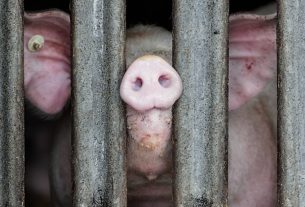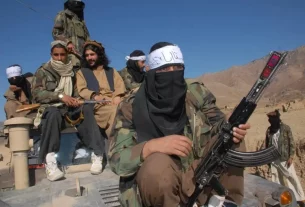Sudan: Famine and Cholera Deepen Humanitarian Catastrophe
One year after famine was first declared in Sudan, the United Nations warns the crisis has deteriorated “catastrophically.” At least 17 regions are now at risk, with North Darfur’s capital, El Fasher, on the brink of starvation, according to U.N. spokesperson Stéphane Dujarric. The famine, initially confirmed in Zamzam displacement camp in August 2024, has since expanded into Darfur, Kordofan, the Nuba Mountains, Khartoum, and Gezira. El Fasher remains under siege, with humanitarian access blocked. The World Food Programme continues to call for unimpeded access amid worsening violence.
Compounding the crisis, a cholera outbreak has infected nearly 100,000 people and claimed over 2,470 lives, Médecins Sans Frontières (MSF) reported. Displaced populations in Darfur bear the brunt of the epidemic due to lack of clean water. In Tawila, North Darfur—where 380,000 displaced persons reside—average water access is just three litres per day, far below WHO’s emergency standard. MSF staff describe extreme overcrowding in treatment centres and use of contaminated water sources, even from wells containing corpses.
DR Congo: M23 Rebel Rule Brings Repression to Goma
The M23 rebel group, backed by Rwanda, continues to rule Goma, eastern DRC’s largest city, under a climate of repression. A six-month investigation by The New Humanitarian reveals summary executions, mass arrests, forced conscriptions, and suppression of civil society. Residents also report a deepening economic crisis marked by job losses, banking shutdowns, and the collapse of basic services. Despite hardship, the rebel elite maintain opulence, drawing public resentment. Calls for accountability remain muted due to fear of reprisal.
Tanzania: Legal Battle Over Treason Trial Transparency
In Tanzania, opposition leader Tundu Lissu’s treason trial remains postponed until August 18, amid a legal battle over whether proceedings should be livestreamed. The prosecution argues for a ban to protect witnesses, while Lissu insists the restriction would undermine transparency. The trial, carrying a possible death sentence, stems from Chadema’s push for electoral reform ahead of the October 29 general election, raising international concerns over political repression.
South Sudan: Kiir Dismisses Key Machar Allies, Jeopardizing Peace Deal
President Salva Kiir has removed several loyalists of rival First Vice President Riek Machar, casting new doubts on the fragile 2018 peace agreement. The purge includes deputy ministers and legislators, despite the African Union’s recent call for renewed commitment to elections and inclusive dialogue. Machar remains under house arrest, accused of inciting violence—an allegation his supporters reject as politically motivated.
Chad: Opposition Silenced as Masra Sentenced to 20 Years
In Chad, former Prime Minister Succes Masra has been sentenced to 20 years in prison for alleged arms possession and incitement. Observers widely view the case as politically motivated, aimed at sidelining a key opposition figure ahead of a troubled democratic transition. Analysts warn the sentence signals a turn toward dynastic autocracy under President Mahamat Idriss Deby, who assumed power after his father’s battlefield death in 2021. Human rights groups condemned the verdict as a “chilling message” to dissenters.
Niger: Legal Strike in Response to Junta’s Crackdown on Justice Unions
Niger’s legal community launched a two-day strike in protest against the military junta’s dissolution of five judicial unions. Lawyers accuse the junta of undermining judicial independence following a July 2023 coup. The move follows similar crackdowns on unions across the public sector, with government justifications citing national security and anti-corruption—claims critics see as a cover for authoritarian consolidation.
Nigeria: Military Conduct Under Scrutiny Amid Civilian Casualties
Nigeria’s Defence Chief General Christopher Musa has defended military operations despite rising civilian casualties from airstrikes against insurgents and bandits in the north and central regions. Musa called for international law reforms, citing the constraints on state forces battling unregulated armed groups. He emphasized ongoing human rights training but admitted operational challenges in minimizing civilian harm during anti-insurgency campaigns.
Plastic Treaty Talks: Nigeria and Allies Reject Draft Agreement
Nigeria, alongside over 80 nations, rejected the latest draft of the UN Global Plastics Treaty during negotiations in Geneva. Nigeria criticized the text for deviating from the original UN Environment Assembly mandate and failing to address the full plastic life cycle, including health and chemical safety. The delegation called for stronger language targeting hazardous substances and greater equity for low- and middle-income nations.
African Union Backs Campaign to Replace Distorted World Maps
The African Union (AU) has endorsed the “Correct The Map” campaign, advocating the global use of maps that accurately reflect Africa’s size. The widely used Mercator projection, developed in the 16th century for navigation, minimizes Africa’s scale while exaggerating the size of Europe and North America. AU Deputy Chair Selma Malika Haddadi said the shift is necessary to combat the marginalization of Africa in education, policy, and perception. The AU is encouraging adoption of the Equal Earth projection, which better represents geographical proportions.
Source: africacenter.org


